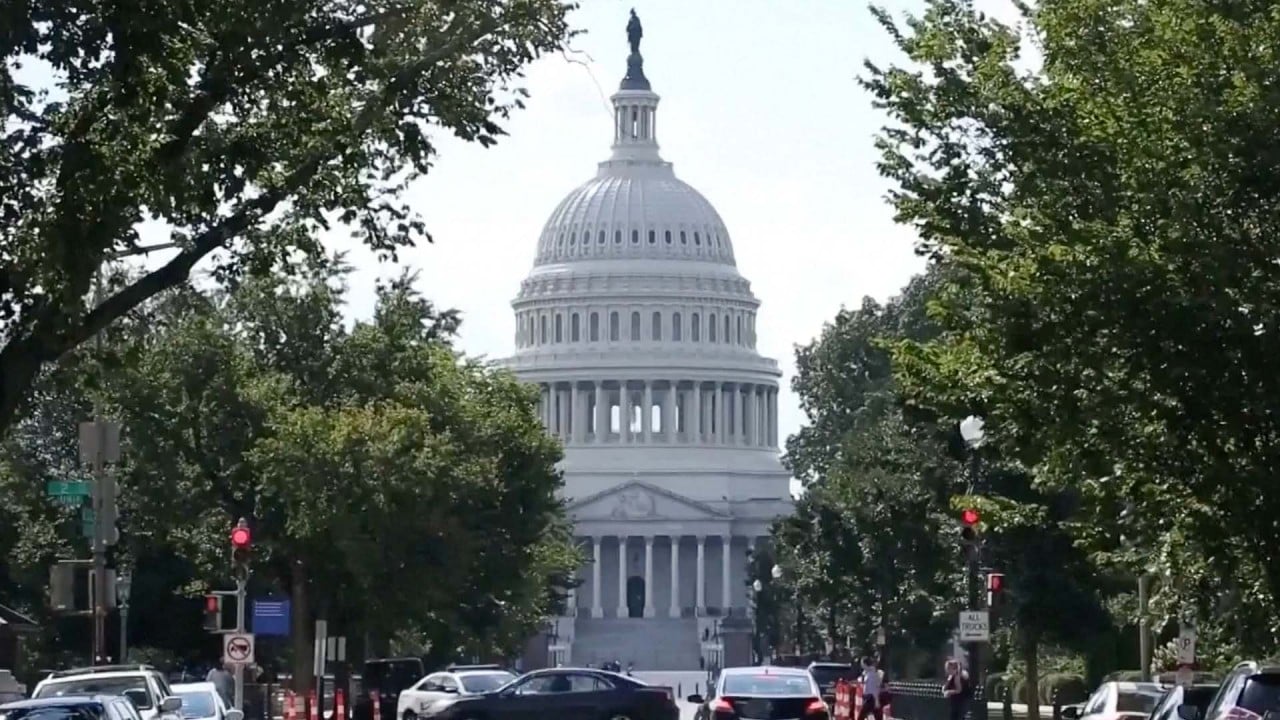
China may raise military stakes if US passes Taiwan Policy Act: analysts
- Beijing won’t ignore Washington if it keeps playing the Taiwan card, expert says
- Relations are at ‘crossroads and both sides must show restraint’
The bill has been described as the most comprehensive restructuring of US policy towards the island since the Taiwan Relations Act in 1979, which defined the non-diplomatic relations between the US and Taiwan.
It proposes allowing Taiwan to have the same treatment as the US’ other major non-Nato allies by allocating US$4.5 billion in security assistance over four years. It also sets up a broad economic sanctions scheme to target Beijing officials and financial institutions in case of “hostilities” towards Taiwan.
US Senator Bob Menendez, co-sponsor of the bill, said the US did not want a war with China but wanted to “lower the existential threats facing Taiwan by raising the cost of taking the island by force”.
The Chinese foreign ministry said on Thursday that Beijing had lodged “solemn representations” over the proposed legislation.
“If the bill continues to be advanced and even passed into law, it will greatly shake the political foundation of the US-China relations,” ministry spokeswoman Mao Ning said.
Li Fei, director of Xiamen University’s Hong Kong, Macau, and Taiwan Research Centre, said the bill was likely to win “overwhelming” approval by US legislators as countering China has now become “the will of the United States”.
Li said Beijing would weigh its response carefully but would not ignore Washington if it continued “playing the Taiwan card” to threaten China’s core interests.
“The more the US provokes, the more intense China will respond … such as deploying aircraft over Taiwan, further strengthening and extending military blockades and drills, and even blocking Taiwan by declaring the Taiwan Strait as our continental body of water and banning vessels from entry,” he said.
Lu Xiang, an US-China relations expert at the Chinese Academy of Social Sciences, agreed that if the bill went ahead, it would “completely reverse” US relations with China.
“The US hopes to enhance Taiwan’s defences, but it will not be enough to resist China’s force to unite [Taiwan],” Lu said.
“China does not want to take the initiative to decouple with the Western countries … The US wants other countries to join its sanction measures, but other countries have their own interests [to consider],” he said.
Pang Zhongying, an international relations specialist at Ocean University of China, said although the bill would likely be passed by the US Congress, Biden would be hesitant to sign it into law.
Pang said ties between the two countries were at a crossroads and each side would weigh their next steps.
He said the Chinese foreign ministry’s response showed restraint and conflicts were manageable if both sides were willing to do so.
“The two sides need to mend their relationship … If presidents Xi and Biden can meet in November, then the relations won’t deteriorate more seriously,” Pang said.
Biden has said he would like to meet Xi if he goes to the Group of 20 summit in Bali in November.
Xi’s attendance was confirmed by the G20 host Indonesian President Joko Widodo but not yet by China.
Pang said if the meeting opportunity was wasted, US-China relations would “drift with the wind”.
US Taiwan Policy Act: how would it change relations with the island?
Mainland China and Taiwan split in 1949 at the end of a civil war when the Kuomintang was defeated by Communist Party forces and fled to Taipei.
Beijing sees the island as part of China and has never ruled out the use of force to take control of it. Most countries, including the US, do not recognise Taiwan as an independent state. Washington, however, opposes any attempt to unilaterally change the status quo.

 - Kawala Xie.jpg?itok=NogZcyZ-&v=1661304068)

.jpg?itok=8c4YEnI0)